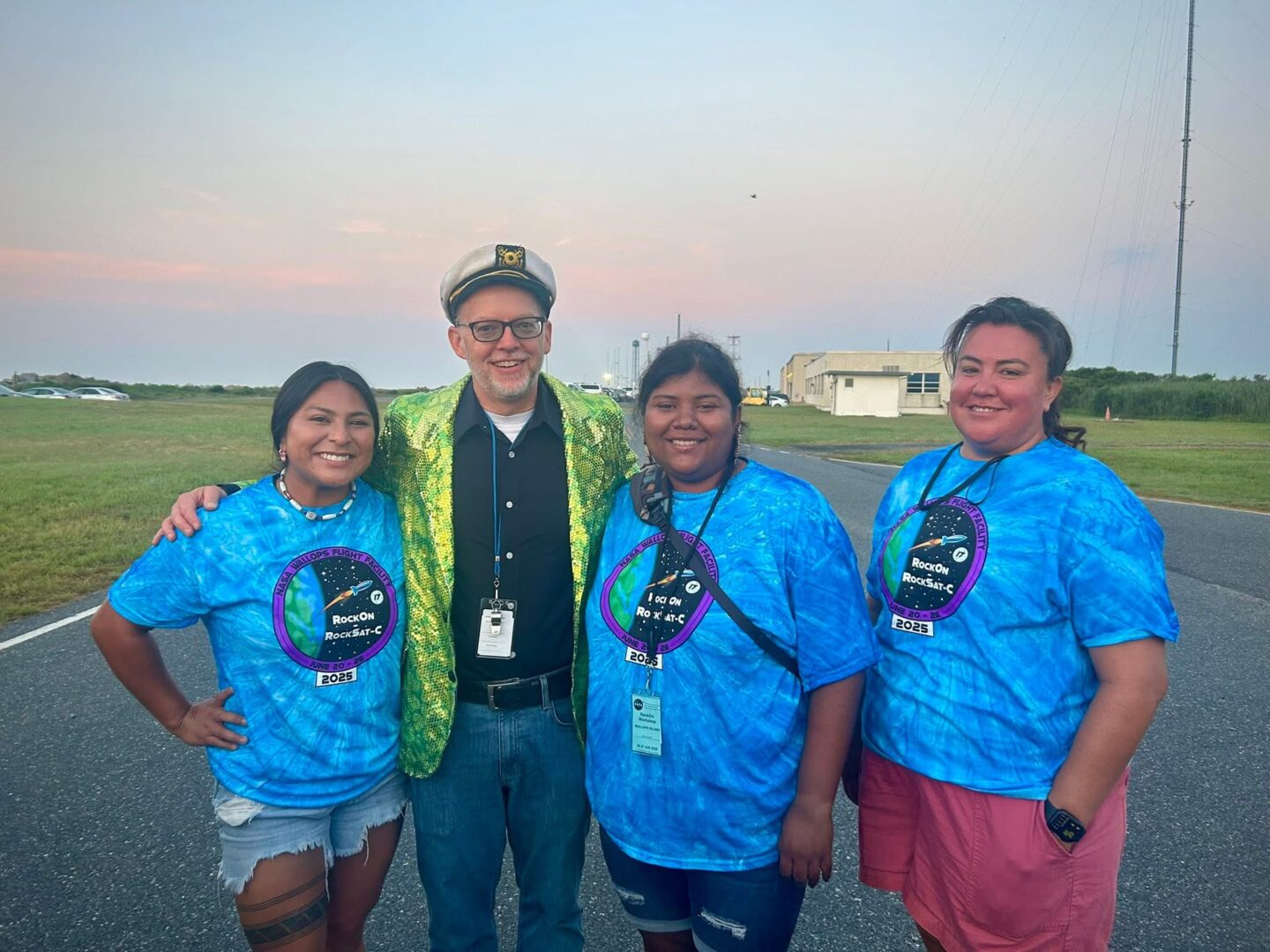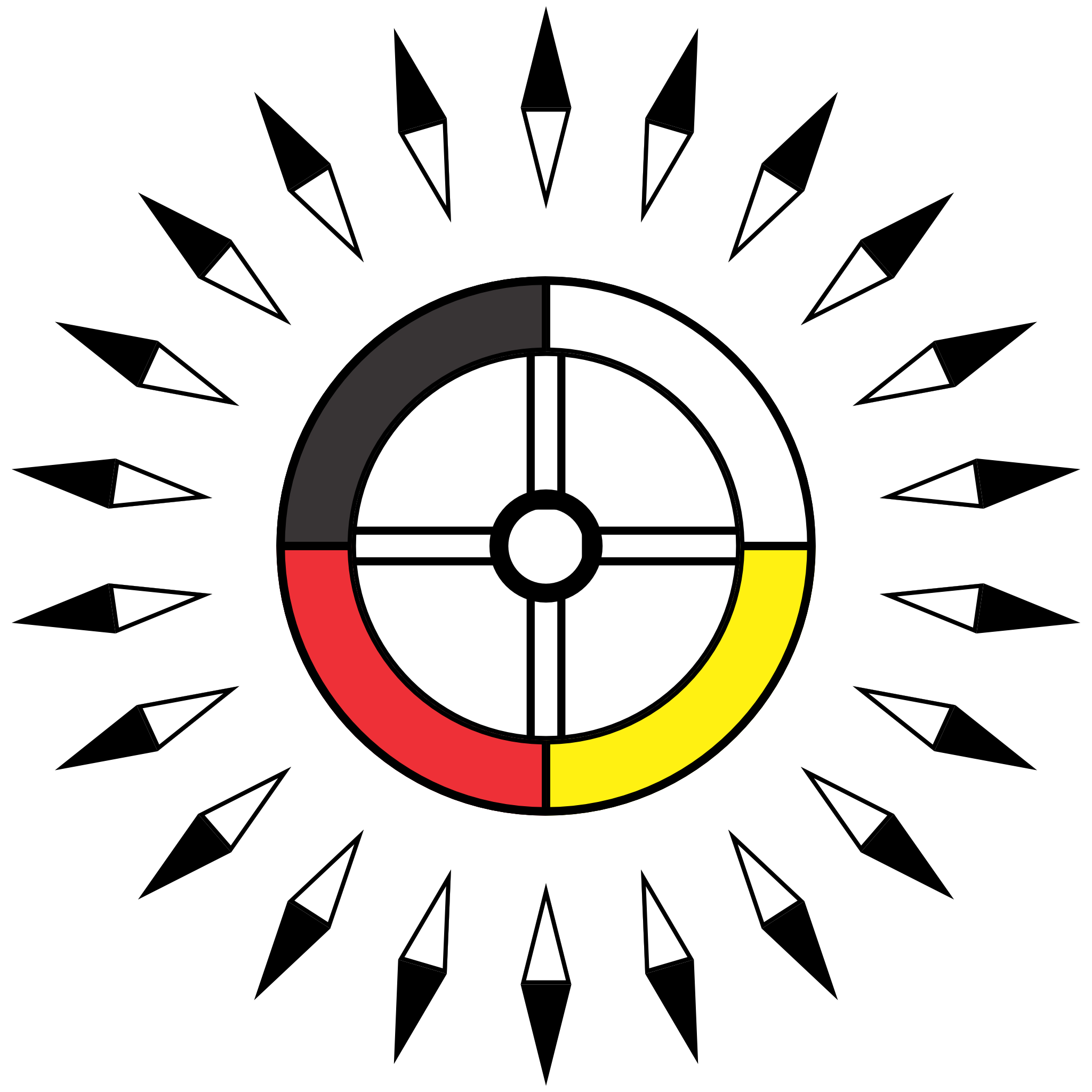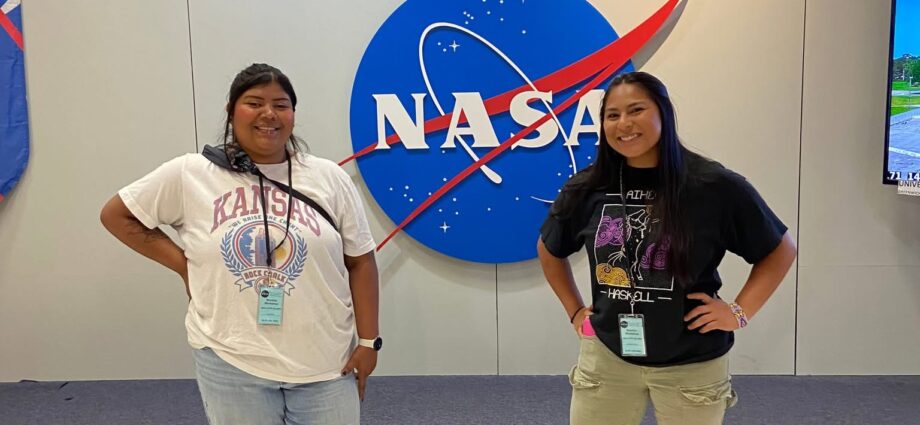This summer, two Haskell students stepped far outside their comfort zones and into NASA territory. Seniors Aziza Smith (Eastern Shoshone, Business Administration) and Aiyanna Tanyan (Seminole Nation of Oklahoma, Business in Tribal Management) took part in the NASA RockOn Workshop, a week-long, immersive experience in aerospace engineering held at Wallops Flight Facility in Virginia. Along with faculty member Dr. Jessica Burghart, the trio formed a team that represented Haskell Indian Nations University on a national stage.
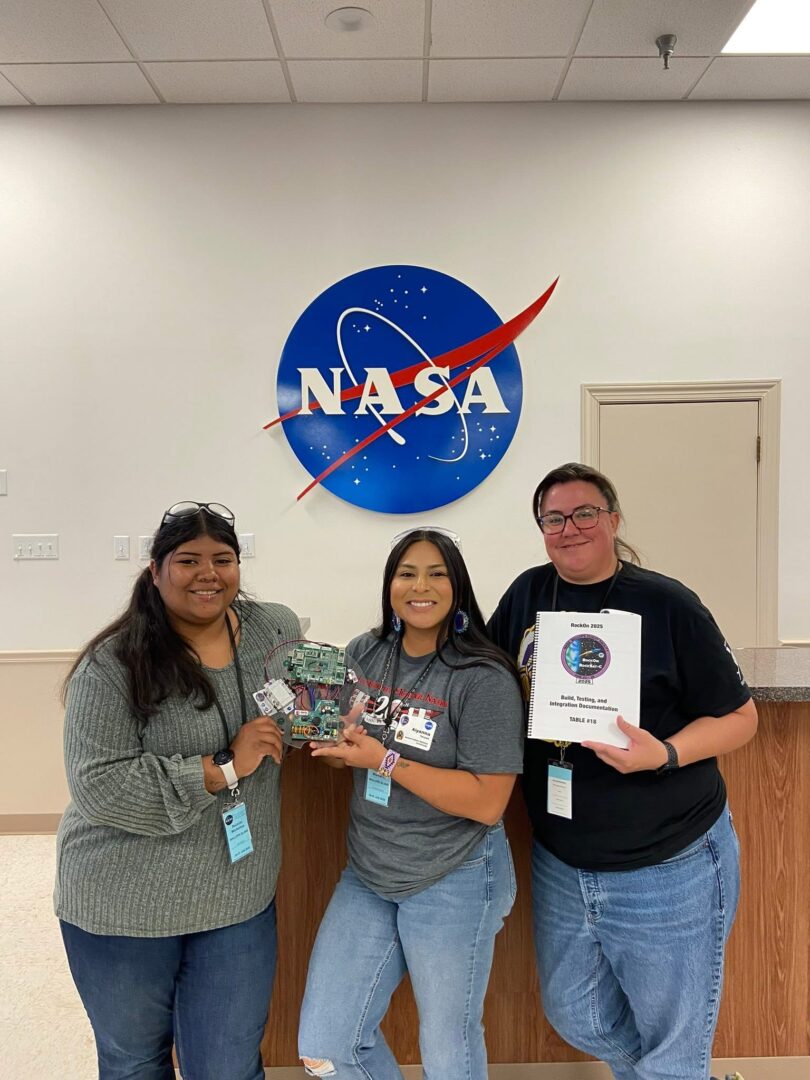
Smith and Tanyan are both members of the American Indian Science and Engineering Society (AISES), and while neither of them come from a traditional STEM background, they jumped at the chance to be involved. “I respect the sciences,” Smith said. “I wanted to learn how my degree could fit into that world.” Tanyan added, “I never imagined doing something like this. I stepped away from the High Power Rocketry Team to focus on research, but when this opportunity came up, I couldn’t say no. I’m so thankful I went.”
The RockOn experience was split between hands-on engineering and enrichment. For seven days, participants built and tested spaceflight payloads, small experimental units designed to fly aboard a sounding rocket. “Each team built the same experiment, soldering parts onto a plate that measured things like humidity, pressure, acceleration, and radiation,” Tanyan explained. “It sounds intimidating, but after the first day, you gain so much confidence.”
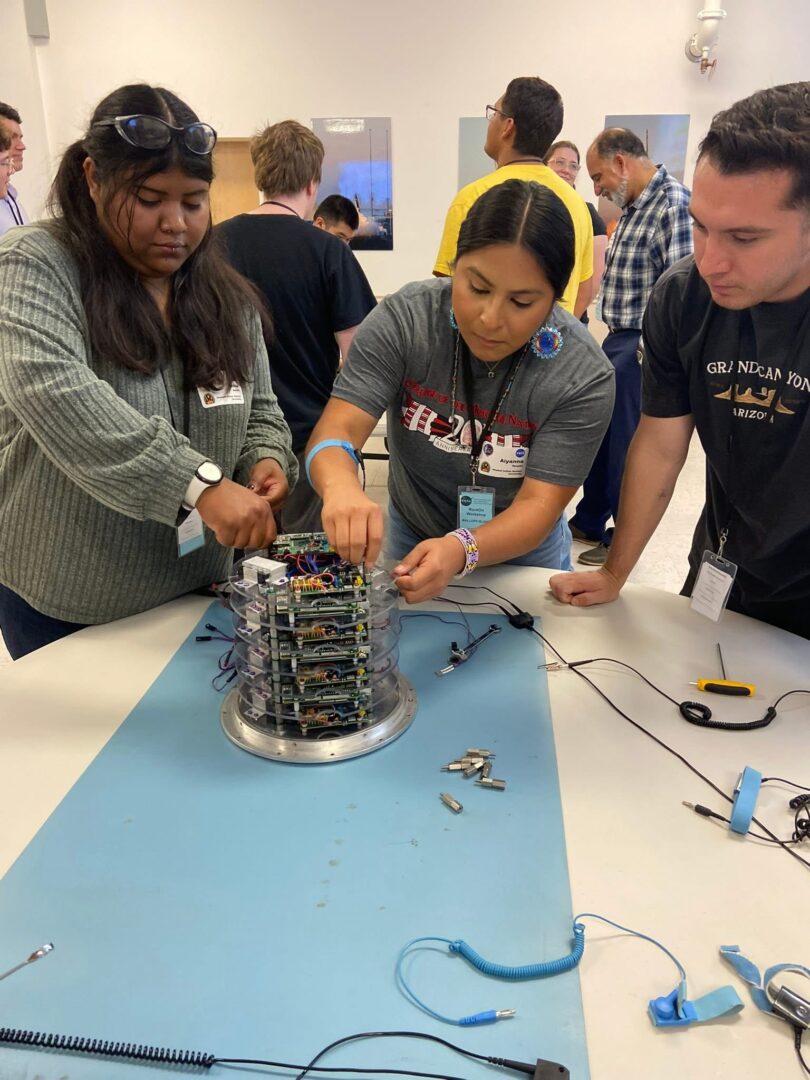
Smith echoed that. “It’s way less intimidating than a business major might think. The staff are there for you every single step of the way. Literally.” She especially enjoyed learning about Arduino and the process of coding the flight sequences. By the end of the week, the team had completed integration, signed the rocket skin, and gathered before sunrise to witness the launch. “Watching the rocket launch was a moment I’ll never forget,” Smith said. “As an Indigenous person, it was comforting and fulfilling to think about how close something we made got to our sky relatives without putting on space suits ourselves.”
Tanyan described the launch as her favorite part as well, but emphasized the teamwork behind the scenes. “They introduced us to the whole team that helped make the launch possible,” she said. “The stage was packed, and there were still more people behind the scenes. It was powerful to see how many roles there are in this kind of work.”
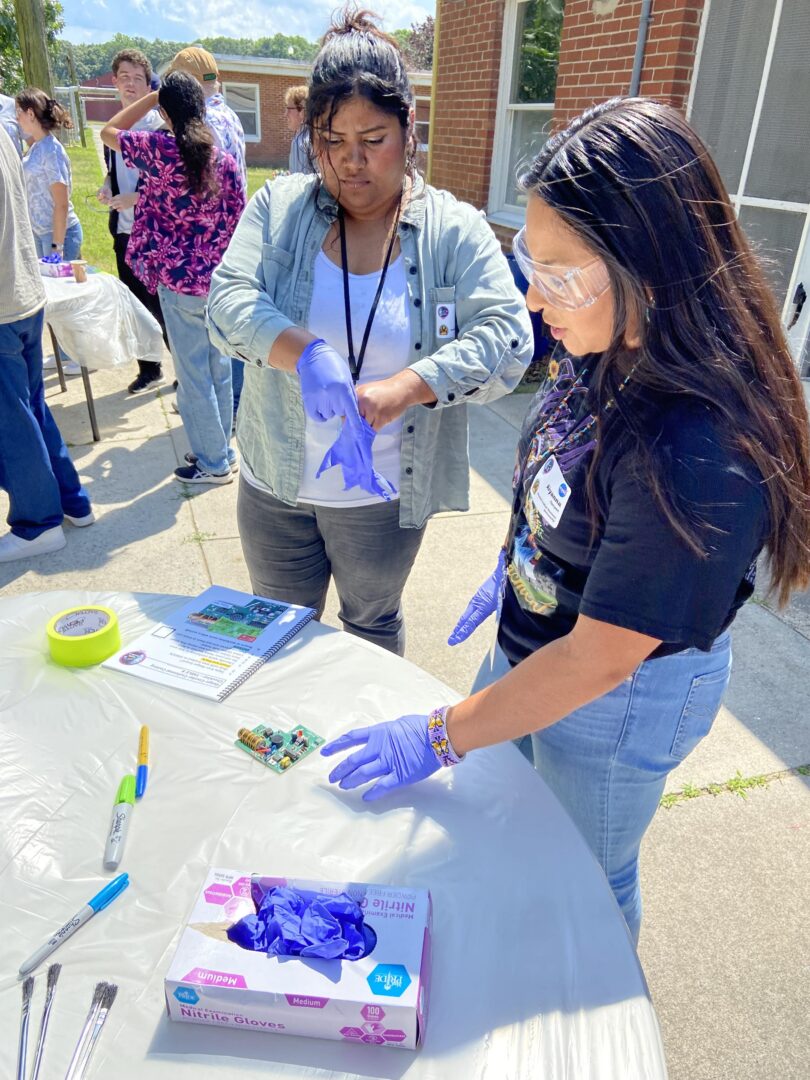
Both students said the sense of community at the workshop was strong, not just within their small Haskell team, but across all participants. “Everyone worked together,” Tanyan said. “We were all aiming for a successful launch, and we helped each other get there.”
Smith added that working with Tanyan, a close friend and fellow AISES member, made the experience even better. “We had great familiarity with each other, and that made our collaboration so much smoother.”
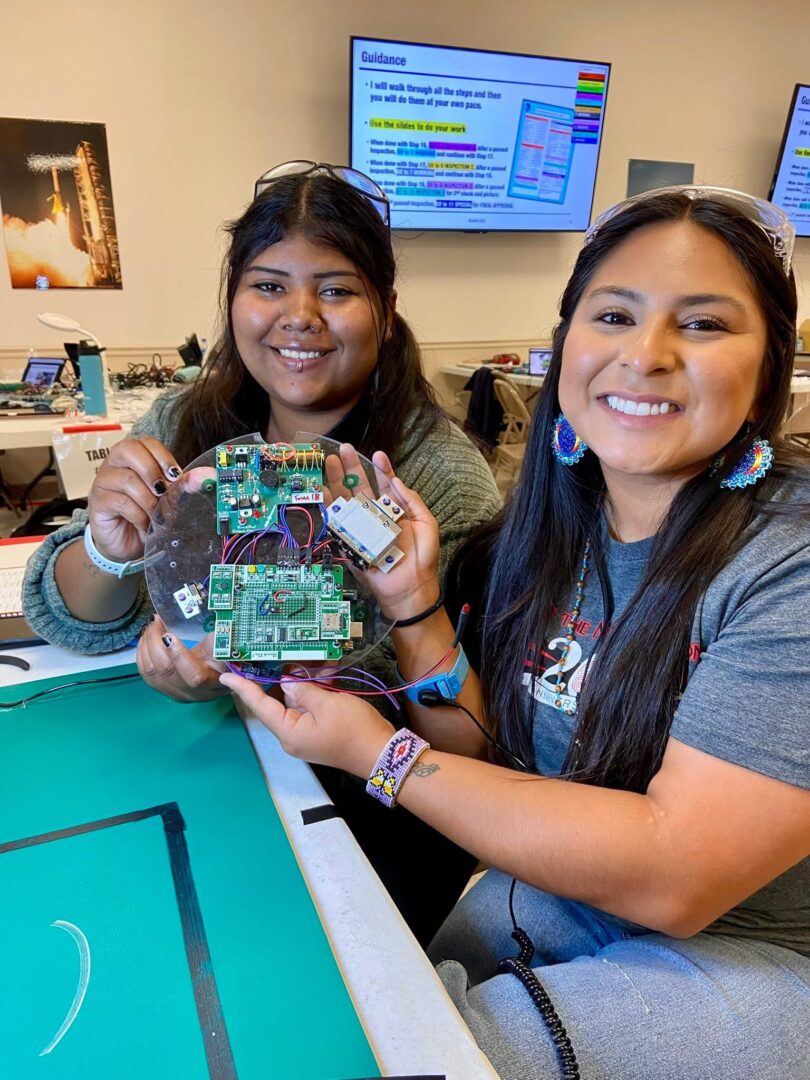
When asked what advice they’d give other Indigenous students, both were firm: Go for it. “Do not be intimidated by an unfamiliar space,” Smith said. “You can always ask questions wherever you are.” Tanyan added, “I was scared at first. I wasn’t sure if I belonged in that space. But I did it anyway, and I’m so glad I didn’t let those feelings stop me. Spaces like these do belong to us, too. We need more Native astronauts. More Native engineers. More Native-led innovation.”
The experience may have even shifted career interests for them. For Smith, it sparked an interest in patent law. “Maybe I won’t work in aerospace directly,” she said, “but I want to support all the future engineers I met at the workshop.”
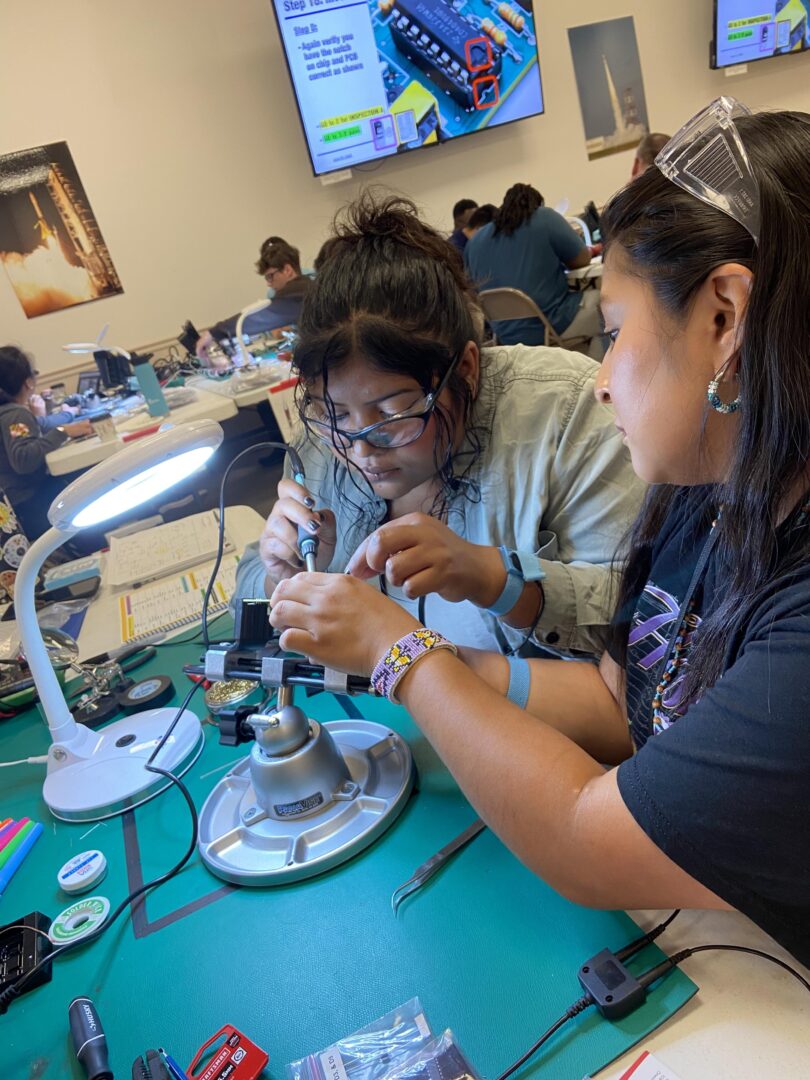
Tanyan said the experience gave her a deeper appreciation for large-scale collaboration, something she plans to carry with her into her future career. “It reminded me that meaningful work is rarely done alone.”
As the rocket soared skyward, it carried not just a payload of instruments but also the dreams, effort, and pride of two Indigenous women who proved, on a national platform, that Native students belong in every space, including space itself.
